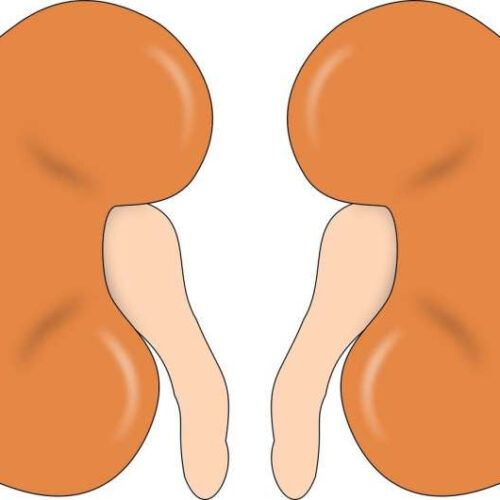UNIVERSITY OF CALIFORNIA – RIVERSIDE IMAGE: CONCEPT ILLUSTRATION OF THE PROPOSED ROBOTIC GARMENT. CREDIT: JONATHAN REALMUTO/UCR UC Riverside engineers are developing low-cost, robotic “clothing” to help children with cerebral palsy gain control over their arm movements. Cerebral palsy is the most common cause of serious physical disability in childhood, and the devices envisioned for this...
Tag: <span>cerebral palsy</span>
Medical student designs a digital solution to help kids with cerebral palsy
Stanford medical student Blynn Shideler created a wearable device for children with cerebral palsy that could provide therapy for young patients everywhere. Medical student Blynn Shideler arrived at Stanford with an award-winning health device – and every intention of improving it. The device addresses a need in the cerebral palsy community. Children with cerebral palsy...
Rethinking Cerebral Palsy Origins
Study uncovers genetic causes in up to one quarter of patients. Cerebral palsy, or CP, has widely been viewed as the result of perinatal oxygen deprivation or other birth-related factors like prematurity. “In CP, the first thing that comes to many physicians’ minds is birth injury or asphyxia,” said Siddharth Srivastava, assistant professor of neurology at Harvard Medical...
Contrary to the common view, cerebral palsy can be genetic
by Children’s Hospital Boston Credit: CC0 Public Domain Cerebral palsy, a non-progressing motor impairment that begins in early childhood, has widely been viewed as the result of oxygen deprivation during birth or other birth-related factors such as prematurity. While this is true for many children, new research from Boston Children’s Hospital finds that as many...
Kidney disease is a problem for cerebral palsy patients. Why are doctors missing it?
by Noah Fromson, University of Michigan Credit: CC0 Public Domain Cerebral palsy and kidney disease can be deeply intertwined. In childhood, the effects of the neurodevelopmental condition—like decreased physical activity and urologic dysfunction—are risk factors for kidney disease. The adverse relationship continues through adulthood as those with cerebral palsy often have high blood pressure, another risk for developing kidney problems. What’s more, a recent Michigan...
Large doses of intensive therapy better for children with cerebral palsy, multi-university study finds
IMAGE: VIRGINIA TECH THERAPIST AND RESEARCHER DORY WALLACE HELPS A YOUNG SUBJECT USING INTENSIVE THERAPY THAT LOOKS A LOT LIKE PLAYTIME. WITH GAMES AND TOYS, CHILDREN LEARN TO USE THEIR BODIES AND GAIN MOTOR SKILLS AND COORDINATION WHILE COMPLETING FUN TASKS. THE TECHNIQUES ARE BUILT ON THE GROUNDBREAKING RESEARCH AND DISCOVERIES AT THE FRALIN BIOMEDICAL...
Study shows when people with cerebral palsy are most likely to break bones
MICHIGAN MEDICINE – UNIVERSITY OF MICHIGAN Researchers at Michigan Medicine found a subset of middle-aged men with cerebral palsy is up to 5.6 times more likely to suffer fractures than men without the disorder. “We are not really sure why this happens,” said Edward A. Hurvitz, M.D., professor and chair of the Michigan Medicine Department...
Geisinger-GeneDx research identifies frequent genetic causes of cerebral palsy
GEISINGER HEALTH SYSTEM DANVILLE, Pa. and GAITHERSBURG, Md. – Researchers have discovered a strong link between genetic changes known to cause neurodevelopmental disabilities and cerebral palsy. Cerebral palsy affects movement and posture and often co-occurs with other neurodevelopmental disorders, including intellectual disability, epilepsy and autism spectrum disorder. Individual cases of cerebral palsy are often attributed to birth...
Adults with cerebral palsy about twice as likely to develop non-communicable diseases
Thursday, 29 August 2019 – Adults with cerebral palsy are about twice as likely to develop cardiovascular disease and chronic respiratory disease compared to adults without cerebral palsy, according to a new study led by RCSI (Royal College of Surgeons in Ireland) and Brunel University London. The study compared 1,700 adults with cerebral palsy and...
Adults with cerebral palsy at higher risk for osteoporosis
Neil E. O’Connell, Ph.D., from Brunel University London, and colleagues used data from the Clinical Practice Research Datalink (1987 to 2015) to identify 1,705 adults with CP and 5,115 controls matched for age, sex, and general practice. The researchers found that adults with CP had an increased risk for osteoporosis in both unadjusted (hazard ratio, 3.67) and adjusted...
- 1
- 2



